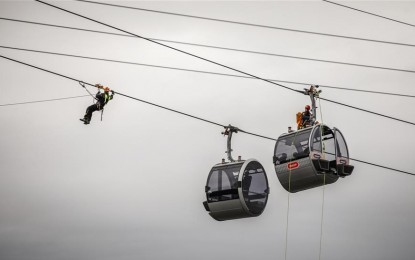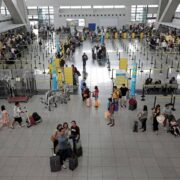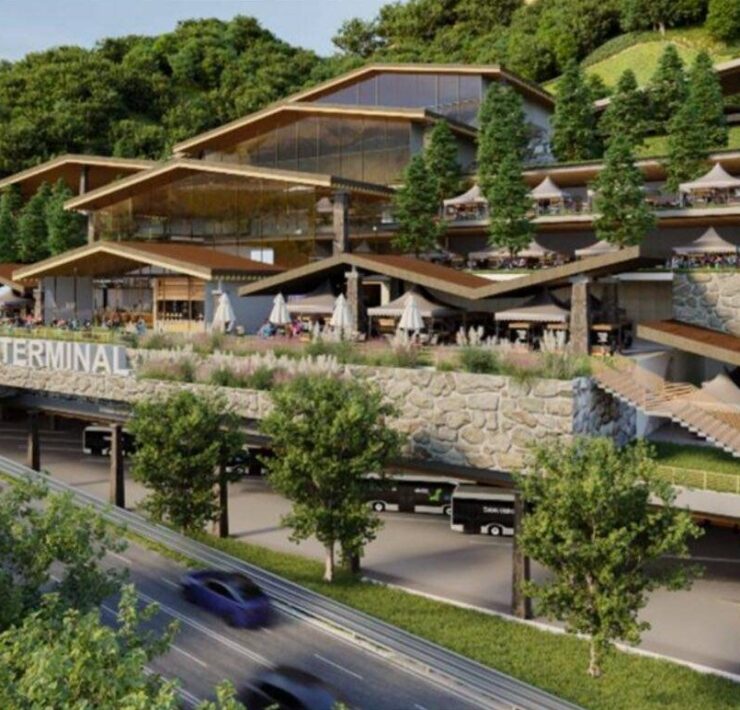Country’s first cable car system to service Rizal commuters by 2028

By 2028, commuters in Rizal may be able to travel between Taytay and Antipolo via the country’s first cable car system, according to the Department of Transportation (DOTr).
Timothy John Batan, DOTr Undersecretary for Planning and Project Development, said they were eyeing to hold the bidding process for the project in 2026.
Should it be awarded the same year, he said the mass transport project would be finished by 2028 as construction would take up to two years.
The cable car system would link the Taytay station of Metro Rail Transit Line 4 (MRT-4) to Antipolo City.
MRT-4 is a 13.4-kilometer elevated railway mass-transit system. It is designed to have 10 stations linking Taytay, Rizal, to Ortigas central business district.
“We know that Antipolo is very dense, and has lots of residents and economic activity, so it will be complementary to connect MRT-4 to Antipolo City,” Batan said.
“The project appears viable. The next step is the detailed feasibility study which the Asian Development Bank is also financing,” he added.
The study, which is expected to start next year, will determine the project cost and passenger capacity.
Public-Private Partnership (PPP) Center of the Philippines Executive Director Cynthia Hernandez, in an interview with the Inquirer on Friday, said the DOTr could tap the agency for assistance.
“If they plan for PDMF (project development and monitoring facility), the facility is open for applications,” she said. The PDMF is a fund managed by the PPP Center to support infrastructure projects in the country.
Last month, the Bases Conversion and Development Authority inked a memorandum of understanding with Japanese company Zip Infrastructure Co. Ltd. to conduct a feasibility study on cable cars in Camp John Hay in Baguio.
The DOTr said this would provide an alternative transport system that could ease traffic congestion in the Cordilleran city.
Transport Secretary Jaime Bautista previously said they were also studying the possibility of establishing a cable car system in Metro Manila.
The public has been actively pushing for mass transport projects across the country in order to decongest roads and improve interregional linkages.
Among the government’s big-ticket projects in the pipeline is the Metro Manila Subway, which is designed to have 17 stations connecting Valenzuela City to Pasay City. It is expected to service over 519,000 passengers daily once operational.





















